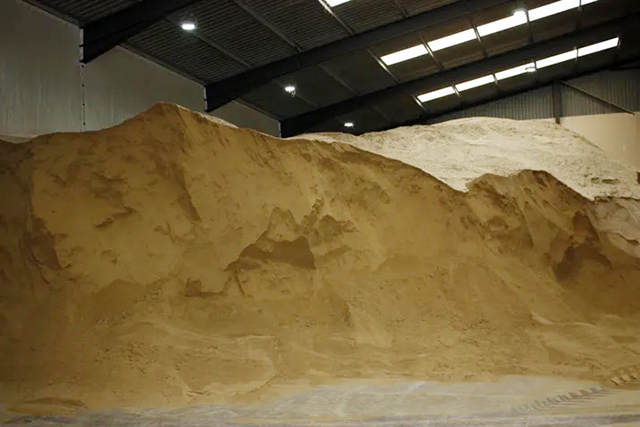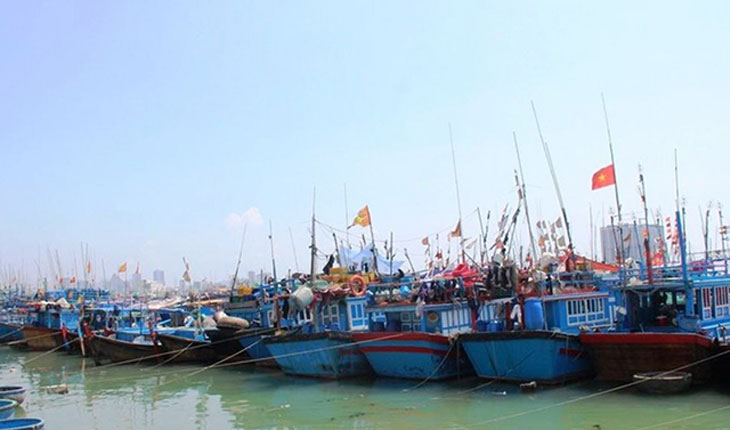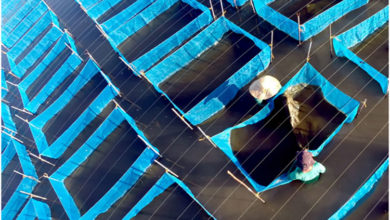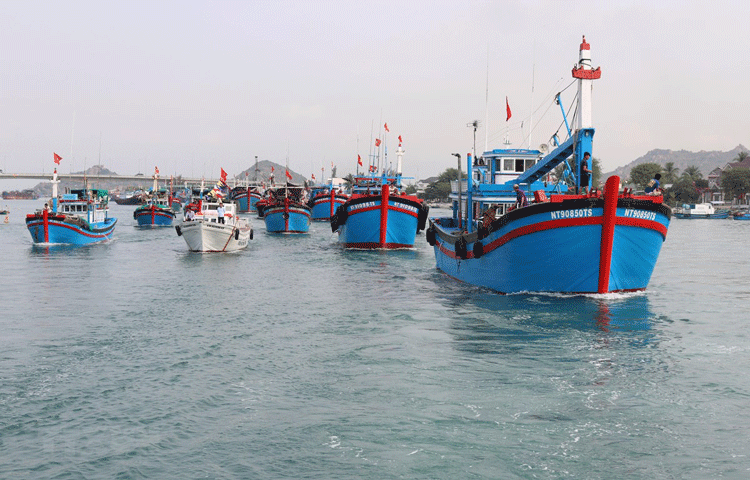Untying bottlenecks is necessary to remove EC’s yellow card
The Vietnam Association of Seafood Exporters and Producers (VASEP), led by Vice President Nguyen Thi Thu Sac, worked with the Khanh Hoa Fishery Subdepartment on June 16. The purpose of the meeting is to discuss the benefits and challenges of fisheries certification and the responsibilities to combat illegal, unreported, and unregulated (IUU) fishing.

VASEP worked with Khanh Hoa Fisheries Sub-Department. Photo: KS.
Mr. Nguyen Nhu Dao, Deputy Director of the Khanh Hoa Fisheries Sub-Department, reported that in recent years, Khanh Hoa province has taken severe action against IUU fishing to call the European Commission to remove its yellow card (EC).
From 2008 through 2020, provincial fishing vessels did not breach international waters to harvest fish. However, as of 2021, despite fishing in Vietnamese waters, the province had 4 fishing vessels arrested abroad. The subdepartment presented information showing the capture coordinates of the fishing vessels. Therefore, it requested to the Government and relevant Ministries that the boundary of the nations’ overlapping seas be clarified as soon as possible to reassure fishermen on their journey.
Over 90% of vessels in the province of Khanh Hoa are equipped with a vessel monitoring system (VMS), while just twenty vessels lack this gear.

Recently, Khanh Hoa fishermen did not breach international waters to harvest fish. Photo: KS.
The ship lost connection to the VMS, causing problems for the management agency as well as affecting the application for approval of fuel support for fishermen. This is just one of the many challenges facing the provincial fishing sector. Therefore, ministries and agencies must address this issue expeditiously.
Regarding the certification and confirmation of seafood, Mr. Lu Thanh Phong of the Subdepartment stated that the unit always provides favorable conditions and assists enterprises in the issuance of Statement of Catch (SC) and Catch Certification (CC). Consequently, the fishing port management boards are responsible for the SC, whilst the Subdepartment of Fisheries is in charge of the CC.

Fishermen submit fishing logs after the ship docked at Hon Ro port. Photo: KS.
As a state-run body, the Khanh Hoa Fisheries Sub-Department must review and re-supervise whether the SC is valid or not. During the investigation, it was discovered that the fishing port management boards sometimes gave inaccurate data, particularly for businesses that suggested to the Sub-Department to receive the CC from other provinces.
Additionally, Khanh Hoa has the Hon Ro fishing port, which has undertaken the verification of seafood material exploitation, but the infrastructure has not yet caught up with the number of anchored fishing vessels.

Processing enterprises purchase striped bonito from fishermen. Photo: Kim So.
VASEP has reviewed and recorded the challenges and deficiencies of Khanh Hoa’s seafood sector for a report to the Government, ministries, and central agencies to gradually eliminate obstacles for the region.
It is known that following the meeting with the Khanh Hoa Fisheries Sub-Department, VASEP continued to work with the Hon Ro Fishing Port Management Board to define the inspection of departing and landing fishing vessels, recording and measuring output and marine species, raw material validation, and anti-IUU tasks.
At the discussion, the representative of Hai Vuong Co., Ltd., the largest tuna exporter in Vietnam (in Khanh Hoa), described the current difficulty in exporting tuna to the Spanish market due to the EU’s “yellow card” policy on Vietnamese seafood. Consequently, the Spanish market severely regulates Vietnam’s exports of tuna.
Translated by Linh Linh
Source: Vietnamagriculture






